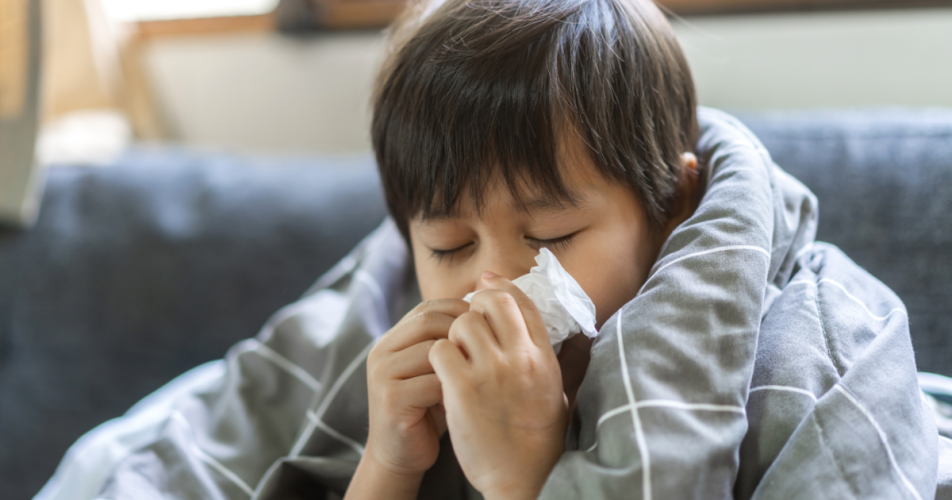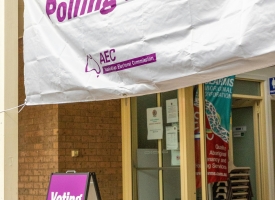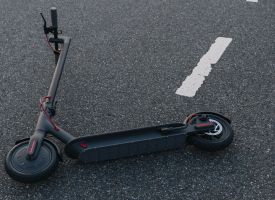Queenslanders urged to get flu shot as cases soar
AMA Queensland President Dr Nick Yim talks to ABC Radio North Queensland presenter Susan Graham-Ryan about increasing flu cases and the need for Queenslanders to get vaccinated.

Transcript: AMA Queensland President, Dr Nick Yim, ABC Radio North Queensland, DMornings with Susan Graham-Ryan, Friday 11 July 2025
Subjects: Increase in flu cases; PBS
SUSAN GRAHAM-RYAN: If you have been hearing lots of coughs and sniffles and sneezes lately, you're probably thinking, well, yes, it's cold and flu season. You might be noticing more of it because cases are on the rise. Let's find out more about that. Dr Nick Yim is the Australian Medical Association Queensland President and with me now.
DR NICK YIM: Good morning. Susan.
SUSAN GRAHAM-RYAN: There's more than 9,000 cases so far year to date, more than the average across the last few years. Is that reflecting what you're seeing in your practice day to day?
DR NICK YIM: Definitely. I'm a GP. What I'm seeing is definitely an increase of coughs and colds, people coming in with fevers, bringing their kids in. And the data doesn't lie. As you've noted, there has been an increase of influenza cases. And over just this past week there have been over 3,000 cases reported.
SUSAN GRAHAM-RYAN: So why are we seeing so many cases?
DR NICK YIM: This occurs every year in the cold season. People mingle inside more, there's less social distancing. One of the key things and one of the key messages is that we do need to stay vaccinated against influenza. We know that our healthcare system is under pressure. People who are being hospitalised are generally, unfortunately, people who haven't been vaccinated against influenza.
SUSAN GRAHAM-RYAN: At least 80 Queenslanders have died from influenza this year. Do you think generally as a population we sort of underestimate the impact of flu and of those other serious respiratory issues?
DR NICK YIM: There's definitely some elements of complacency. There's definitely elements of underestimation of severity. We know that it's not just the elderly that become sick with influenza. People of all ages, but those in particular with chronic diseases, can become quite unwell. With the influenza vaccine, some people may still contract the cough and the sniffles, but the key thing here is we want to protect against serious illness, hospitalisations, and also protecting those around you who are more vulnerable.
SUSAN GRAHAM-RYAN: What are some of those ways that we can protect ourselves and our loved ones from flu, RSV, COVID and those many bugs that are doing the rounds at the moment?
DR NICK YIM: The number one thing, if you haven't taken up on the Queensland free offer of getting that vaccination, please get vaccinated. Number two, if people are feeling unwell, fevers, coughs and colds, take the opportunity to have that day off or stay at home to avoid that spread to other people around you. And finally, we know from COVID times, hand washing, hygiene - that is so important. So continue washing those hands.
SUSAN GRAHAM-RYAN: You are hearing from the AMA Queensland President, Dr Nick Yim. We've also been hearing about US President Donald Trump flagging a possible 200% tariff on pharmaceuticals. That is one of Australia's biggest exports to the US. Mr Trump wants more pharmaceuticals manufactured in America. Is this something that the AMA is monitoring because there may be potential in Australia for this?
DR NICK YIM: We are definitely keeping an eye on this situation. It is concerning. We know that Australia has one of the best healthcare systems around the world for affordability. Healthcare is a right for Australians. And it will be disappointing if these increased tariffs will lead to increased prices in Australia.
SUSAN GRAHAM-RYAN: One of the big concerns for many Australians is being able to continue to afford their medicine.
DR NICK YIM: 100%. I'm sure your listeners would have heard the horror stories from the United States about people going bankrupt due to healthcare costs, due to medication costs, and we do not want to see that in Australia. As I said, we have a great system, the PBS. It maintains affordable medications for all Australians.
SUSAN GRAHAM-RYAN: What are some of the other concerns from the AMA's perspective?
DR NICK YIM: As we would have read in the media, medication shortages are a big issue across the country. One of the great challenges of being on an island in the Pacific is access to medications can be challenging and we are affected by medication shortages. So moving forward, one of the big long-term strategies that Australia needs to develop is a sustainable medication supply so we aren't impacted by shortages.
SUSAN GRAHAM-RYAN: One of the other things that we used to hear a lot about during the COVID pandemic was when there were shortages in a lot of PPE and pharmaceuticals. And even more recently, of course, we have had shortages in different medicines at different times. If America is hoping to have more of the manufacturing in America, and that would take it offshore potentially for Australia, would this put our sovereignty from a pharmaceutical medical perspective in some shaky situations? Are there some concerns for you there?
DR NICK YIM: This is one of the great challenges that we have. We know that Australia negotiates with many countries around the world. We do need to make sure we have security for medication supply, PPE supply, and also ensuring that we do maintain a high quality of care in Australia.
SUSAN GRAHAM-RYAN: President of AMA Queensland, Dr Nick Yim, thanks so much for your time this morning.
DR NICK YIM: Always a pleasure. Have a great weekend.



